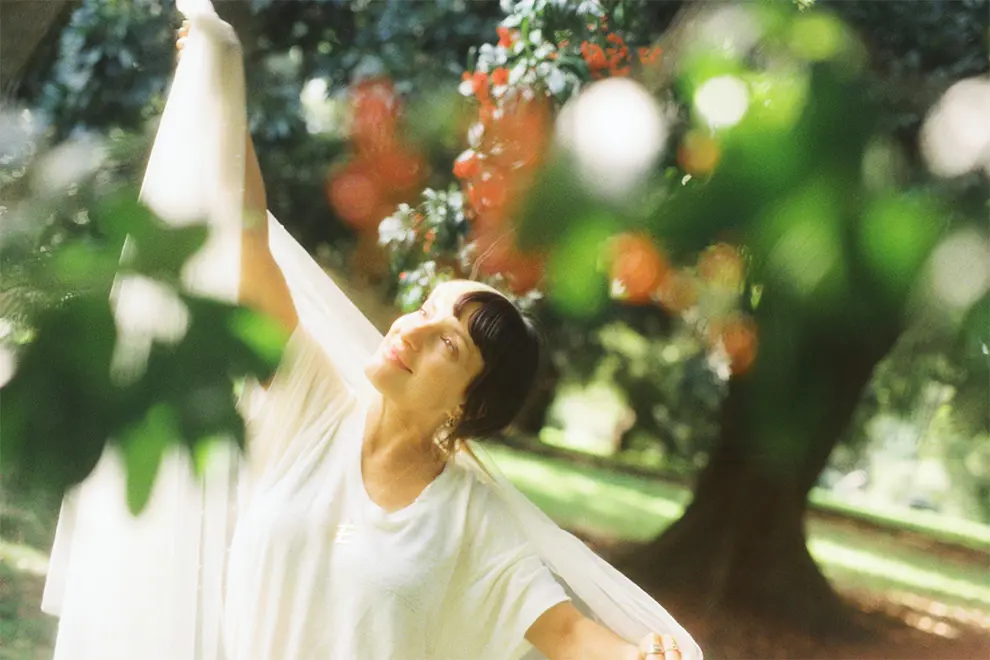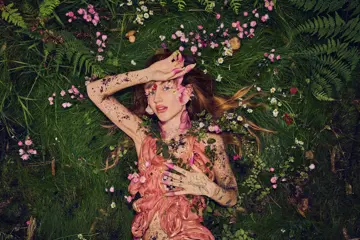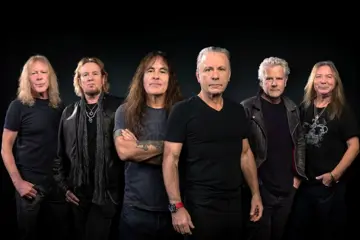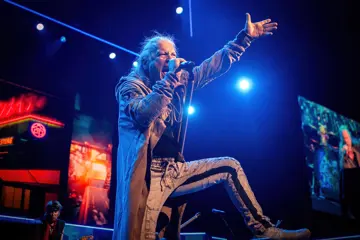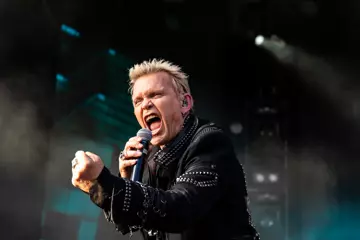Emily Ulman is one of the great thinkers in Australian music.
During the dark days of Covid, she co-created Isol-Aid, which was a lifeline for musicians across the nation. It won a Music Victoria award for Best Festival, and a “You Done Good Award” at the J Awards.
Emily has also been the executive program director of Always Live, the Victorian government’s celebration of live music, as well as programming the Brunswick Music Festival and booking Melbourne venues such as The Prince Bandroom, The Toff in Town and the Gasometer.
After working behind the scenes for many years, Emily has now returned to making her own music.
Severe Clear – her first album in a decade – is released today. An intoxicating mix of indie folk, the artist admits to feeling a combination of “excitement, nerves and relief”.
“Coming back to my own music has felt strange but also incredibly normal, like that feeling when you see a friend again after a long time and it feels like no time has passed,” she says.
But feelings of self-doubt were never far from the surface as Emily worked on her first album since 2015’s Wear It Well.
“My nearest and dearest companion, imposter syndrome, is always in the sidecar while I am in the rider’s seat.
“I do not overly mind that, though, or maybe I just don’t know any different,” she continues. “After 10 years away, it was impossible not to question what I was doing. But I love these tunes and this record, and while the self-doubt never fully disappears, it softens.
“So I guess the songs remind me why I am here.”
On the record, Emily sings: “You want things to be easy, you want them to be so clean/ They rarely are …”
“That could be my epitaph,” she laughs.
Don't miss a beat with our FREE daily newsletter
“But the making of my album was sublime. I worked with the best and I got the best. Bonnie Knight, Gab Strum, Alex Lashlie, Soren Maryasin – heaven sent!”
Emily says working with producer Bonnie Knight (Amyl And The Sniffers, Angie McMahon, Teen Jesus And The Jean Teasers) was “an absolute joy”.
“They had this way of making me feel absolutely pampered, so much so that I kept joking with them that I felt like I was at a day spa.
“Their approach is all about listening and really tuning into what the song needs and what I was trying to say and convey. Sometimes it was as simple as a quiet nod of encouragement, other times it was knowing exactly when to say ‘do it again’ or ‘that’s the one.’”
Early in Emily’s career, Angie Hart gave her some advice that has stayed with her: “Don’t worry about the notes you can hit or how loudly you can sing. Your job is to be unequivocally you.”
Emily describes songwriting as “emotional archaeology”.
“I write to excavate. I sing to preserve. I make music to stay awake to the mess and the magic of it all. Digging through memory and feelings to see what might still be living underneath.
“I’m drawn to the quiet intensity of a moment or phrase and the way a single word can unearth something you thought was long buried.”
For this record, Emily dug up a range of memories.
“That’s the thing about archaeology,” she smiles. “It’s about uncovering the memories that have been lying dormant for weeks, months, years, a lifetime.
“Writing this record was a strange process of digging up my familiar, alongside what has been harder to access and understand, and then trying to make sense of both.
“You know when you explore a city – your own or one you’re visiting – and there are the old buildings alongside the new. I love that. And I relate to it.”
Emily is stumped when asked what artists she has been compared to. “If you are reading this and have a good comparison for me, please let me know,” she says.
“A surprising one was after a show when someone told me I reminded them of Dolores O’Riordan from The Cranberries. That has stayed with me; I don’t hear it, but I adore it nonetheless.”
What lessons did Emily learn while working behind the scenes that she’s now applying to her own music career?
“Impermanence and patience.”
She has booked hundreds of artists. One booking sticks in her mind as an inspiration: Gillian Welch and David Rawlings.
“They sold out so many large-scale shows around the country and remained so low-key and humble and generous and so true to who they are,” she remembers. “They kept things simple, insisted on driving themselves around, and never once wavered from their simplicity. On and off stage.”
So, how does an artist “cut through” with a new album these days?
“I don’t really know the answer to that,” Emily admits, “and I’m not sure I am the person to ask.
“I just want to write music I love, record it with people I love, and perform it for audiences I love. That might not be the formula for cutting through, but it is the only way I know I will enjoy and be excited by making and sharing music.”
“Who wants to be a question mark?” Emily sings on the album.
“I wrote this track [Lake Mistake] during a deep Melbourne winter. Waking up in the dark, wondering whether these were my best years and wondering whether I was giving these best hours and years to my job and what that meant about the rest of the time I was living.
“It’s a contemplation on liminal spaces and living in uncertainty and the blurry, and the absence of definitive answers. The uncertainty can be the hard part. It certainly felt like the hard part.”
As both performer and behind-the-scenes practitioner, Emily can provide a unique insight into the Australian music scene. So, what are the biggest challenges facing Australian music right now?
“There are two big ones that come to mind,” she responds. “First, radio quotas.
“We have an incredible amount of local talent, but if Australian songs are not being played on Australian airwaves, we risk losing our own stories. It is like hosting a dinner party and forgetting to feed your own family. Quotas need to be stronger and actually upheld in daylight/prime hours, otherwise artists and audiences both miss out.
“Second, AI,” she continues. “It is moving faster than the industry knows how to handle.
“While it can be a useful tool, it also raises huge questions about ownership, creativity and authenticity. Music at its core is human, messy (mine is anyway), emotional. If we’re not careful, AI risks flattening that into something generic.
“The challenge presented is to find ways to embrace this technology without losing the voices that make Australian music so unique.”
If Emily Ulman had a magic wand and could change one thing about the Australian music scene, what would it be?
“Oh, to have a magic wand!
“If I had one, the whole local music ecosystem would be better resourced. Insurance for venues would be affordable, musicians could actually make a proper living from their art, and grants and government funding would be flowing freely for artists, venues, festivals and arts workers.
“Australian music would be prioritised on commercial radio, and there would be endless media and publicity opportunities, including TV, for local musicians. My wand would see a domestic music scene that is sustainable, celebrated and thriving at every level.”
Another line leaps out of the album: “The harder things are, the more excited I get for what’s coming next …” So, what’s next for Emily Ulman?
“I want to create more art and consume more art.”
Though she’s again making her own music, Emily is not lost to promoting other artists.
“I’ll also be behind the scenes, platforming and profiling as many local artists as I can,” she promises. “The cycle of making and receiving and promoting is what keeps me going.”
Emily Ulman’s Severe Clear is out today.
This piece of content has been assisted by the Australian Government through Music Australia and Creative Australia, its arts funding and advisory body


